ELECTRICITYCLUB.CO.UK has always preferred a cover version over a remix any day of the week…
But if you are going to do a cover in an electronic fashion, then try to be original! Don’t be bleeding obvious, retreading a Numan track unless something fresh can be offered or recording a Depeche song weeks after it is released as some did with ‘Ghosts Again’… maybe pick an obscure country, folk or soul number and make it your own with an otherworldly synth-laden treatment…
A follow-up to the 25 CLASSIC SYNTH COVERS and 25 21ST CENTURY SYNTH COVERS 2000 to 2014 articles, this listing features recordings made since 2015 up to the present day. So here selected by ELECTRICITYCLUB.CO.UK are ANOTHER 25 SYNTHY COVERS 2015 & BEYOND, with the list restricted to one song per artist moniker, presented in yearly and then alphabetical order …
MARSHEAUX Monument (2015)
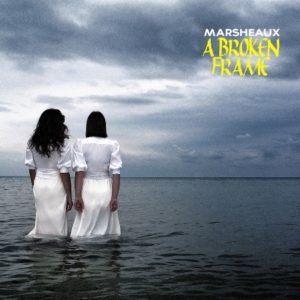 The MARSHEAUX reworking of DEPECHE MODE’s second album ‘A Broken Frame’ shed new light on Martin Gore’s first long form adventure as songwriter and affirmed that ‘My Secret Garden’ and ‘The Sun & The Rainfall’ were just great songs. But ‘Monument’ was an example of a cover outstripping the original and given additional political resonance with the economic situation close to home that the Greek synth maidens found themselves living in at the time of its recording.
The MARSHEAUX reworking of DEPECHE MODE’s second album ‘A Broken Frame’ shed new light on Martin Gore’s first long form adventure as songwriter and affirmed that ‘My Secret Garden’ and ‘The Sun & The Rainfall’ were just great songs. But ‘Monument’ was an example of a cover outstripping the original and given additional political resonance with the economic situation close to home that the Greek synth maidens found themselves living in at the time of its recording.
Available on the MARSHEAUX album ‘A Broken Frame’ via Undo Records
METROLAND Close To Me (2015)
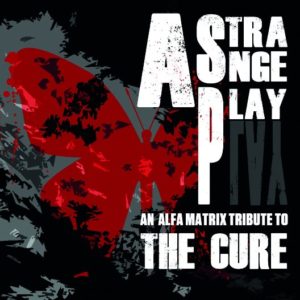 Needing to be heard to be believed, this rather inventive and charming cover of THE CURE’s ‘Close To Me’ by Belgium’s favourite passengers METROLAND utilised a selection of male and female computer voice generators to provide the lead vocal, in a move likely to upset the majority of real music purists. Meanwhile, the hidden melodies shone much more brightly than in the goth-laden original, thanks to its wonderful and clever electronic arrangement.
Needing to be heard to be believed, this rather inventive and charming cover of THE CURE’s ‘Close To Me’ by Belgium’s favourite passengers METROLAND utilised a selection of male and female computer voice generators to provide the lead vocal, in a move likely to upset the majority of real music purists. Meanwhile, the hidden melodies shone much more brightly than in the goth-laden original, thanks to its wonderful and clever electronic arrangement.
Available on the album ‘A Strange Play – An Alfa Matrix Tribute To The Cure’ (V/A) via https://alfamatrix.bandcamp.com/album/a-strange-play-an-alfa-matrix-tribute-to-the-cure
http://www.metrolandmusic.com/
PARALLELS Moonlight Desires (2015)
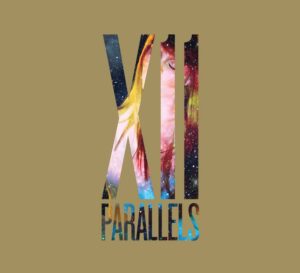 A song by mulleted Canadian rock musician Lawrence Gowan, ‘Moonlight Desires’ was first released by him in 1987 and featured Jon Anderson on backing vocals! Fellow Canadians PARALLELS fronted by Holly Dodson gave the hook-laden song a more nocturnal synthpop-oriented twist which wouldn’t have sounded out of place on the soundtrack a Brat Pack movie.
A song by mulleted Canadian rock musician Lawrence Gowan, ‘Moonlight Desires’ was first released by him in 1987 and featured Jon Anderson on backing vocals! Fellow Canadians PARALLELS fronted by Holly Dodson gave the hook-laden song a more nocturnal synthpop-oriented twist which wouldn’t have sounded out of place on the soundtrack a Brat Pack movie.
Available on the PARALLELS album ‘XII’ via Marigold Productions Ltd
https://www.iloveparallels.com/
TREGENZA The Partisan (2015)
 Manchester based Ross Tregenza is an experienced hand having co-written ‘Diaries Of A Madman’ with Dave Formula and Steve Strange when he was a member of VISAGE II in 2007. He surprised electronic music audiences with a Spartan cover of ‘The Partisan’, a song made famous by Leonard Cohen. While some may despair at the very mention of the droll Canadian, his work has strong parallels with Gothic veined musical forms, especially with this harrowing tale of fighting for La Résistance.
Manchester based Ross Tregenza is an experienced hand having co-written ‘Diaries Of A Madman’ with Dave Formula and Steve Strange when he was a member of VISAGE II in 2007. He surprised electronic music audiences with a Spartan cover of ‘The Partisan’, a song made famous by Leonard Cohen. While some may despair at the very mention of the droll Canadian, his work has strong parallels with Gothic veined musical forms, especially with this harrowing tale of fighting for La Résistance.
Available on the TREGENZA album ‘Into The Void’ via Tregenza Music
https://www.facebook.com/tregenzamusic
JOHAN BAECKSTRÖM Jerusalem (2016)
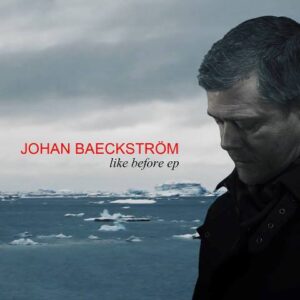 One of DAILY PLANET’s main inspirations was cult UK synth trio WHITE DOOR. So when their chief synthesist Johan Baeckström was needing tracks to include on his ‘Like Before’ EP, the almost choir boy overtures of ‘Jerusalem’ was a natural choice for a cover version. Of course, this was not the first time Baeckström had mined the WHITE DOOR back catalogue as the more halcyon ‘School Days’ adorned the flip of his debut solo single ‘Come With Me’.
One of DAILY PLANET’s main inspirations was cult UK synth trio WHITE DOOR. So when their chief synthesist Johan Baeckström was needing tracks to include on his ‘Like Before’ EP, the almost choir boy overtures of ‘Jerusalem’ was a natural choice for a cover version. Of course, this was not the first time Baeckström had mined the WHITE DOOR back catalogue as the more halcyon ‘School Days’ adorned the flip of his debut solo single ‘Come With Me’.
Available on the JOHAN BAECKSTRÖM EP ‘Like Before EP’ via Progress Productions
https://www.facebook.com/bstrommusic/
PSYCHE Ring The Bells (2016)
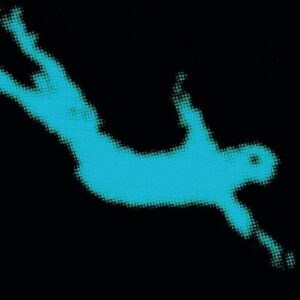 From the Cold War Night Life curated ‘Heresy: A Tribute To Rational Youth’, one of the highlights from the collection was PSYCHE’s take on ‘Ring The Bells’ from appropriately, RATIONAL YOUTH’s ‘Cold War Night Life’ debut. The clattering 808 beat and elegantly haunting sweeps combined with Darrin Huss’ mournful vocal provide an atmospheric reworking that betters the original and reflects the decades long kinship between RATIONAL YOUTH and PSYCHE.
From the Cold War Night Life curated ‘Heresy: A Tribute To Rational Youth’, one of the highlights from the collection was PSYCHE’s take on ‘Ring The Bells’ from appropriately, RATIONAL YOUTH’s ‘Cold War Night Life’ debut. The clattering 808 beat and elegantly haunting sweeps combined with Darrin Huss’ mournful vocal provide an atmospheric reworking that betters the original and reflects the decades long kinship between RATIONAL YOUTH and PSYCHE.
Originally on the album ‘Heresy: A Tribute To Rational Youth’ (V/A) via Cold War Night Life, currently unavailable
THE FRIXION Under A Cherry Moon (2017)
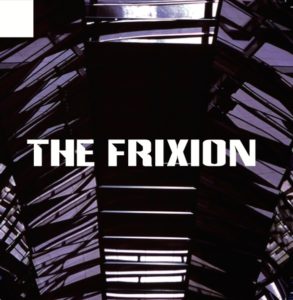 Forming in 2016, seasoned vocalist Gene Serene and producer Lloyd Price’s combined sound delightfully borrowed from both classic synthpop and Weimar Cabaret on THE FRIXION’s self-titled EP debut. From it, a tribute to The Purple One came with this touching take of his ‘Under The Cherry Moon’, highlighting PRINCE’s often hidden spiritual connection to European pop forms and recalling ‘The Rhythm Divine’, YELLO’s epic collaboration with Shirley Bassey.
Forming in 2016, seasoned vocalist Gene Serene and producer Lloyd Price’s combined sound delightfully borrowed from both classic synthpop and Weimar Cabaret on THE FRIXION’s self-titled EP debut. From it, a tribute to The Purple One came with this touching take of his ‘Under The Cherry Moon’, highlighting PRINCE’s often hidden spiritual connection to European pop forms and recalling ‘The Rhythm Divine’, YELLO’s epic collaboration with Shirley Bassey.
Available on THE FRIXION EP ‘The Frixion’ via https://thefrixion.bandcamp.com/
https://www.facebook.com/TheFrixion/
HEAVEN Lonesome Town (2017)
 The mysterious HEAVEN first came to wider attention with the release of the ‘Lonesome Town’ EP. Caked in reverb and virtually unrecognisable, the funereal paced title song cover of the Ricky Nelson ballad captured the fragility of the broken heart as conveyed by the forlorn vocals of Aja Emma. Closer scrutiny revealed that HEAVEN was another project helmed by the ubiquitous musician and producer Johnny Jewel, best known a member of CHROMATICS.
The mysterious HEAVEN first came to wider attention with the release of the ‘Lonesome Town’ EP. Caked in reverb and virtually unrecognisable, the funereal paced title song cover of the Ricky Nelson ballad captured the fragility of the broken heart as conveyed by the forlorn vocals of Aja Emma. Closer scrutiny revealed that HEAVEN was another project helmed by the ubiquitous musician and producer Johnny Jewel, best known a member of CHROMATICS.
Available on the HEAVEN EP ‘Lonesome Town’ via Italians Do It Better
https://www.facebook.com/ITALIANSDOITBETTER/
KALEIDA 99 Luftballons (2017)
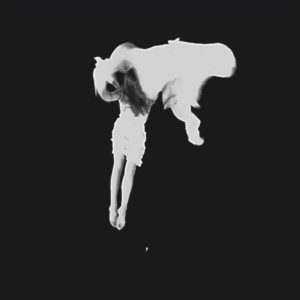 Moody electronic duo KALEIDA first came to wider attention opening for Róisín Murphy in 2015. Covers have always been part of Christina Wood and Cicely Goulder’s repertoire with ‘A Forest’ and ‘Take Me To The River’ being among them. Their sparse rendition of ‘99 Luftballons’ by Nena earned kudos for being very different and included in the soundtrack of the Cold War spy drama ‘Atomic Blonde’, hauntingly highlighting the nuclear apocalypse warning in the lyric.
Moody electronic duo KALEIDA first came to wider attention opening for Róisín Murphy in 2015. Covers have always been part of Christina Wood and Cicely Goulder’s repertoire with ‘A Forest’ and ‘Take Me To The River’ being among them. Their sparse rendition of ‘99 Luftballons’ by Nena earned kudos for being very different and included in the soundtrack of the Cold War spy drama ‘Atomic Blonde’, hauntingly highlighting the nuclear apocalypse warning in the lyric.
Available on the KALEIDA album ‘Tear The Roots’ via https://kaleida.bandcamp.com
UNIFY SEPARATE Mute (2017)
 What happens when you cross anthemic Scottish indie with cinematic Swedish synth? You get US, now known as UNIFY SEPARATE. A cover of a 2001 song with an acoustic but modern flavour by Swedish singer-songwriter Stakka Bo aka Bo Johan Renck, this was perfect for Andrew Montgomery of GENEVA and Leo Josefsson of LOWE to showcase their different musical sensibilities in a more electronic setting as their debut single.
What happens when you cross anthemic Scottish indie with cinematic Swedish synth? You get US, now known as UNIFY SEPARATE. A cover of a 2001 song with an acoustic but modern flavour by Swedish singer-songwriter Stakka Bo aka Bo Johan Renck, this was perfect for Andrew Montgomery of GENEVA and Leo Josefsson of LOWE to showcase their different musical sensibilities in a more electronic setting as their debut single.
Available on the UNIFY SEPARATE album ‘First Contact’ via https://unifyseparate.bandcamp.com/album/first-contact
https://www.unifyseparate.com/
IONNALEE Mysteries Of Love (2019)
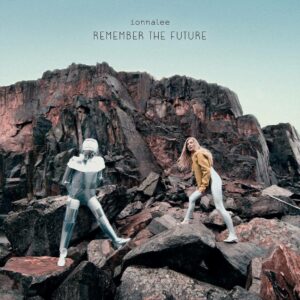 The biggest surprise on the second IONNALEEalbum ‘Remember The Future’ came with the cover of ‘Mysteries Of Love’, the iconic Angelo Badalamenti ‘Blue Velvet’ song with lyrics by David Lynch, originally performed by Julee Cruise. Co-produced by RÖYSKOPP, Jonna Lee stole the moment with her angelic voice while big synth leads and widescreen atmospheres were reminiscent of Vangelis.
The biggest surprise on the second IONNALEEalbum ‘Remember The Future’ came with the cover of ‘Mysteries Of Love’, the iconic Angelo Badalamenti ‘Blue Velvet’ song with lyrics by David Lynch, originally performed by Julee Cruise. Co-produced by RÖYSKOPP, Jonna Lee stole the moment with her angelic voice while big synth leads and widescreen atmospheres were reminiscent of Vangelis.
Available on the IONNALEE album ‘Remember The Future’ via To Whom It May Concern
KID MOXIE Big In Japan (2020)
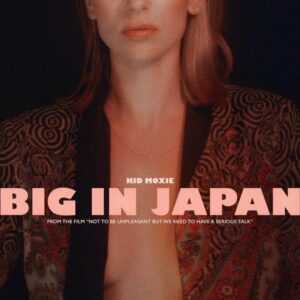 Unwittingly reflecting the Covid crisis, KID MOXIE soundtracked the film ‘Not To Be Unpleasant, But We Need to Have a Serious Talk’. The plot centred around a womanizer who finds out he is a carrier of an STD, lethal only to women! She said of ‘Big In Japan’: “It didn’t feel right to necessarily use drums because I did want to take a departure from the ALPHAVILLE original. There was already a strong rhythm element with the synth bass and it takes it to a different place by having a woman sing it.”
Unwittingly reflecting the Covid crisis, KID MOXIE soundtracked the film ‘Not To Be Unpleasant, But We Need to Have a Serious Talk’. The plot centred around a womanizer who finds out he is a carrier of an STD, lethal only to women! She said of ‘Big In Japan’: “It didn’t feel right to necessarily use drums because I did want to take a departure from the ALPHAVILLE original. There was already a strong rhythm element with the synth bass and it takes it to a different place by having a woman sing it.”
Available on the KID MOXIE album ‘The Covers’ via Minos EMI
http://www.facebook.com/kidmoxie
NATION OF LANGUAGE Gouge Away (2020)
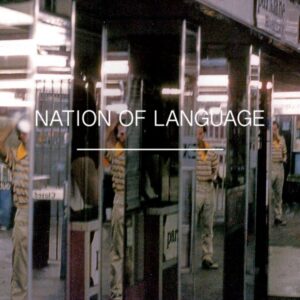 NATION OF LANGUAGE front man Ian Devaney was in an alternative rock band THE STATIC JACKS who released an album in 2013, but his interest in synths was sparked by hearing OMD’s ‘Electricity’ in his father’s car for the first time in years. In NATION OF LANGUAGE, he combined his past and future interests into an excellent electronic cover of PIXIES’ ‘Gouge Away’ which managed to maintain the frustration, aggression and menace of the original within a new blippy machine driven setting.
NATION OF LANGUAGE front man Ian Devaney was in an alternative rock band THE STATIC JACKS who released an album in 2013, but his interest in synths was sparked by hearing OMD’s ‘Electricity’ in his father’s car for the first time in years. In NATION OF LANGUAGE, he combined his past and future interests into an excellent electronic cover of PIXIES’ ‘Gouge Away’ which managed to maintain the frustration, aggression and menace of the original within a new blippy machine driven setting.
Available on the NATION OF LANGUAGE single ‘Gouge Away’ via https://nationoflanguage.bandcamp.com/track/gouge-away
https://www.nationoflanguage.com/
DIE ROBO SAPIENS FanFanFanatisch (2020)
 More machine than metal, DIE ROBO SAPIENS is the more purely electronic sideline of Düsseldorf industrialists DIE KRUPPS. In honour of their home city which spawned KRAFTWERK, NEU! and DAF, they covered the less internationally well-known RHEINGOLD in tribute their late leader Bodo Staiger; Given the subject matter, his powerful DAF-influenced 1982 statement on toxic fandom ‘FanFanFanatisch’ was appropriately reworked into something where the body was strong.
More machine than metal, DIE ROBO SAPIENS is the more purely electronic sideline of Düsseldorf industrialists DIE KRUPPS. In honour of their home city which spawned KRAFTWERK, NEU! and DAF, they covered the less internationally well-known RHEINGOLD in tribute their late leader Bodo Staiger; Given the subject matter, his powerful DAF-influenced 1982 statement on toxic fandom ‘FanFanFanatisch’ was appropriately reworked into something where the body was strong.
Available on DIE ROBO SAPIENS ‘FanFanFanatisch – The Düsseldorf EP’ via https://alfamatrix.bandcamp.com/album/fanfanfanatisch-the-d-sseldorf-ep
JORJA CHALMERS Rhapsody (2021)
 Recorded for a SIOUXSIE & THE BANSHEES covers album, this superb take by Jorja Chalmers on ‘Rhapsody’ off their ninth album ‘Peepshow’, made use of an intriguing electronic warble within its stripped down arrangement; from its claustrophobic cocoon, Chalmers sounds trapped in an unsettling icy soundscape of synthetic strings and choirs.
Recorded for a SIOUXSIE & THE BANSHEES covers album, this superb take by Jorja Chalmers on ‘Rhapsody’ off their ninth album ‘Peepshow’, made use of an intriguing electronic warble within its stripped down arrangement; from its claustrophobic cocoon, Chalmers sounds trapped in an unsettling icy soundscape of synthetic strings and choirs.
Available on the JORJA CHALMERS album ‘Midnight Train’ via Italians Do it Better
https://www.instagram.com/jorjachalmers/
GEMMA CULLINGFORD Ode To Billie Joe (2021)
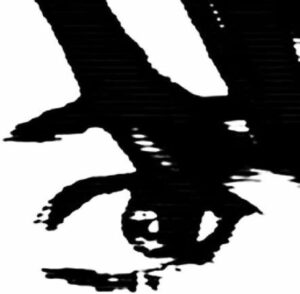 Making her name in the duo SINK YA TEETH, Norwich-based Gemma Cullingford made her debut as a solo artist with the ‘Let Me Speak’ album. Utilising a minimal programmed backdrop, a stark spoken word reading of Bobby Gentry’s ‘Ode To Billie Joe’ proved to be a highlight. “I loved the melody, the fact that it was quite a happy sounding song but the lyrics seemed quite dark” she said, “Then I read the lyrics and saw just how dark they are, and I kinda jokingly said I’d do a cover of it!”
Making her name in the duo SINK YA TEETH, Norwich-based Gemma Cullingford made her debut as a solo artist with the ‘Let Me Speak’ album. Utilising a minimal programmed backdrop, a stark spoken word reading of Bobby Gentry’s ‘Ode To Billie Joe’ proved to be a highlight. “I loved the melody, the fact that it was quite a happy sounding song but the lyrics seemed quite dark” she said, “Then I read the lyrics and saw just how dark they are, and I kinda jokingly said I’d do a cover of it!”
Available on the GEMMA CULLINGFORD album ‘Let Me Speak’ via Outré Disque
https://www.gemmacullingford.co.uk/
DLINA VOLNY Hollywood (2021)
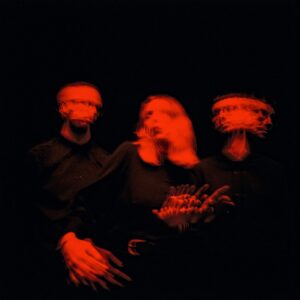 Italians Do it Better were named after a legend emblazoned on a T-shirt Madonna was wearing in the ‘Papa Don’t Preach’ video and would later release a tribute compilation featuring their roster of artists. Exiled from their homeland of Belarus, DLINA VOLNY alternated a detached deepness with an unexpected pop register on their reinterpretation of ‘Hollywood’ that presented the song as a much harsher warning to those seeking stardom.
Italians Do it Better were named after a legend emblazoned on a T-shirt Madonna was wearing in the ‘Papa Don’t Preach’ video and would later release a tribute compilation featuring their roster of artists. Exiled from their homeland of Belarus, DLINA VOLNY alternated a detached deepness with an unexpected pop register on their reinterpretation of ‘Hollywood’ that presented the song as a much harsher warning to those seeking stardom.
Available on the DLINA VOLNY album ‘Dazed’ via Italians Do it Better
https://www.facebook.com/dlinavolny/
PSY’AVIAN featuring MARI KATTMAN Monoculture (2022)
 PSY’AVIAH is the electronic rock vehicle of Yves Schelpe and in a collaboration featuring Mari Kattman of HELIX on vocals, the B-side to their ‘Can We Make It Rhyme’ single was a cover of Monoculture’ which came from the first reunion of SOFT CELL in 2002. Her voice fitted perfectly to the heavier backdrop with the Marc Almond’s original commentary on the world’s cultural mediocrity as relevant as ever.
PSY’AVIAH is the electronic rock vehicle of Yves Schelpe and in a collaboration featuring Mari Kattman of HELIX on vocals, the B-side to their ‘Can We Make It Rhyme’ single was a cover of Monoculture’ which came from the first reunion of SOFT CELL in 2002. Her voice fitted perfectly to the heavier backdrop with the Marc Almond’s original commentary on the world’s cultural mediocrity as relevant as ever.
Available on the PSY’AVIAN featuring MARI KATTMAN maxi-single ‘Can We Make It Rhyme’ via Alfa Matrix
https://www.facebook.com/psyaviah/
https://www.facebook.com/MariKattman
SCANNER Alone Again Naturally (2022)
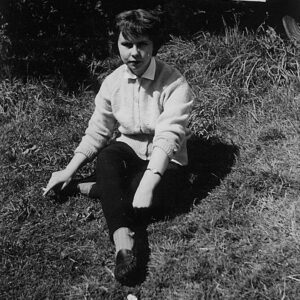 Not known for his vocal work as SCANNER, Robin Rimbaud recorded a covers EP of his late mother’s favourite songs as a tribute to her memory. Using vocoder and synths, his take on ‘Alone Again (Naturally)’, Gilbert O’Sullivan’s introspective hit song reflecting on loss and bereavement, was particularly poignant and perhaps unexpectedly given the robotic backdrop, emotional. The other songs featured were ‘Da Ya Think I’m Sexy?’ and ‘When I Need You’.
Not known for his vocal work as SCANNER, Robin Rimbaud recorded a covers EP of his late mother’s favourite songs as a tribute to her memory. Using vocoder and synths, his take on ‘Alone Again (Naturally)’, Gilbert O’Sullivan’s introspective hit song reflecting on loss and bereavement, was particularly poignant and perhaps unexpectedly given the robotic backdrop, emotional. The other songs featured were ‘Da Ya Think I’m Sexy?’ and ‘When I Need You’.
Available on the SCANNER EP ‘Jayemme’ via https://scanner.bandcamp.com/album/jayemme
DURAN DURAN Bury A Friend (2023)
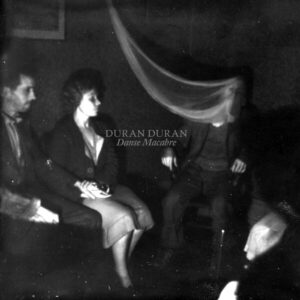 With a vampiric intro recalling David Bowie’s ‘Cat People’, DURAN DURAN’s take on ‘Bury A Friend’ was much more direct and propulsive compared to the minimal Billie Eilish original. Swathed in jagged synth and guitar sounds as well as Simon Le Bon’s histrionic vocals, it more than fitted in with the Halloween theme of the ‘Danse Macabre’ album which was primarily made up of cover versions and darker re-recordings of Duran faves.
With a vampiric intro recalling David Bowie’s ‘Cat People’, DURAN DURAN’s take on ‘Bury A Friend’ was much more direct and propulsive compared to the minimal Billie Eilish original. Swathed in jagged synth and guitar sounds as well as Simon Le Bon’s histrionic vocals, it more than fitted in with the Halloween theme of the ‘Danse Macabre’ album which was primarily made up of cover versions and darker re-recordings of Duran faves.
Available on the DURAN DURAN album ‘Danse Macabre’ via BMG / Tape Modern
SOFT CELL The World Turned Day-Glo (2023)
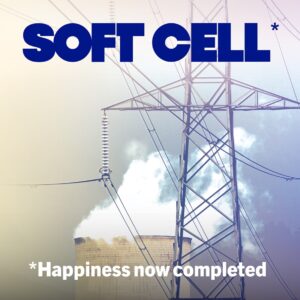 Always adept at doing covers having had hits with ‘Tainted Love’ and ‘What’, SOFT CELL presented a brilliant electro tribute to Poly Styrene with ‘The Day The World Turned Day-Glo’. Taking a musical leaf out of ‘Sex Dwarf’ with Dave Ball making his syndrums and synths sound so menacing yet accessible, while Marc Almond delivers a vocal recalling the anguish of ‘Martin’ with sleazy sax passages resonating with the dystopian lyrics.
Always adept at doing covers having had hits with ‘Tainted Love’ and ‘What’, SOFT CELL presented a brilliant electro tribute to Poly Styrene with ‘The Day The World Turned Day-Glo’. Taking a musical leaf out of ‘Sex Dwarf’ with Dave Ball making his syndrums and synths sound so menacing yet accessible, while Marc Almond delivers a vocal recalling the anguish of ‘Martin’ with sleazy sax passages resonating with the dystopian lyrics.
Available on the SOFT CELL album ‘*Happiness now completed’ via BMG
RICKY WILDE x NINA Lovers On A Beach (2023)
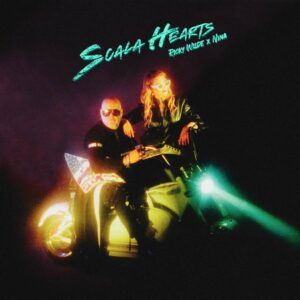 A fabulous cover of the Italo flavoured Kim Wilde B-side to ‘The Second Time’ from 1984, the throbbing ‘Lovers On A Beach’ saw NINA sounding sexier than ever before. Ricky Wilde said “I just thought there was a little bit more that it needed that I maybe wanted to add back in the day”. With sharp spikey edges boosting the trancey template, he provided a superb extended end section that paid homage to Giorgio Moroder in the best way possible.
A fabulous cover of the Italo flavoured Kim Wilde B-side to ‘The Second Time’ from 1984, the throbbing ‘Lovers On A Beach’ saw NINA sounding sexier than ever before. Ricky Wilde said “I just thought there was a little bit more that it needed that I maybe wanted to add back in the day”. With sharp spikey edges boosting the trancey template, he provided a superb extended end section that paid homage to Giorgio Moroder in the best way possible.
Available on the RICKY WILDE X NINA album ‘Scala Hearts’ via New Retro Wave
https://twitter.com/Wildericky
https://www.iloveninamusic.com/
SALLY SHAPIRO Rent – NICOLAAS remix (2023)
 Covered by acts as diverse CARTER THE UNSTOBBALE SEX MACHINE and Liza Minnelli, the latest interpretation of PET SHOP BOYS stark narrative of a kept woman came via this wispy account by Swedish duo SALLY SHAPIRO. Keeping the relationship dependency theme close to its heart but offering an icier Nordic vision from a female perspective, the sax of Steve Moore provided extra sleaze to the NICOLAAS remix.
Covered by acts as diverse CARTER THE UNSTOBBALE SEX MACHINE and Liza Minnelli, the latest interpretation of PET SHOP BOYS stark narrative of a kept woman came via this wispy account by Swedish duo SALLY SHAPIRO. Keeping the relationship dependency theme close to its heart but offering an icier Nordic vision from a female perspective, the sax of Steve Moore provided extra sleaze to the NICOLAAS remix.
Available on the SALLY SHAPIRO single ‘Rent’ via Italians Do It Better
https://www.facebook.com/shapirosally
NIGHT CLUB The Lunatics Have Taken Over The Asylum (2024)
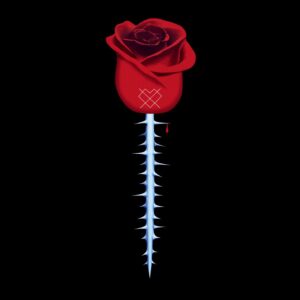 ‘Masochist’ was the highly appropriate title for the fourth NIGHT CLUB album, a dystopian prophecy that came true! Written by FUN BOY THREE in 1981 as a metaphor by to the dangerous posturing games played by Ronald Reagan aka “The Cowboy” during The Cold War, the inclusion of a cover of ‘The Lunatics (Have Taken Over the Asylum)’ became even more sinister with the ultimate lunatic duo of Donald Trump and JD Vance now given control of the nuclear button…
‘Masochist’ was the highly appropriate title for the fourth NIGHT CLUB album, a dystopian prophecy that came true! Written by FUN BOY THREE in 1981 as a metaphor by to the dangerous posturing games played by Ronald Reagan aka “The Cowboy” during The Cold War, the inclusion of a cover of ‘The Lunatics (Have Taken Over the Asylum)’ became even more sinister with the ultimate lunatic duo of Donald Trump and JD Vance now given control of the nuclear button…
Available on the NIGHT CLUB album ‘Masochist’ via Gato Blanco
https://www.facebook.com/nightclubband
PROPAGANDA Wenn Ich Mir Was Wünschen Dürfte (2024)
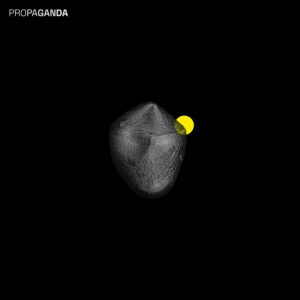 Starting a new chapter of PROPAGANDA, Michael Mertens and Ralf Dörper recruited young German singer Thunder Bae. Her talent shined with a superbly enticing performance in a haunting cover of ‘Wenn Ich Mir Was Wünschen Dürfte’, a Weimar-era song written by Friedrich Hollaender in 1930 that was made famous by Marlene Dietrich. The song had been also used for a controversial scene in the 1974 film ‘The Night Porter’.
Starting a new chapter of PROPAGANDA, Michael Mertens and Ralf Dörper recruited young German singer Thunder Bae. Her talent shined with a superbly enticing performance in a haunting cover of ‘Wenn Ich Mir Was Wünschen Dürfte’, a Weimar-era song written by Friedrich Hollaender in 1930 that was made famous by Marlene Dietrich. The song had been also used for a controversial scene in the 1974 film ‘The Night Porter’.
Available on the PROPAGANDA album ‘Propaganda’ via by Bureau B
ELECTRICITYCLUB.CO.UK’s ‘A Fistful Of Electronic Covers’ playlist featuring reinterpretations through the ages can be heard via Spotify at https://open.spotify.com/playlist/12XFwF5iuLj3Jl7Tj2GTpE
Text by Chi Ming Lai
26th April 2025


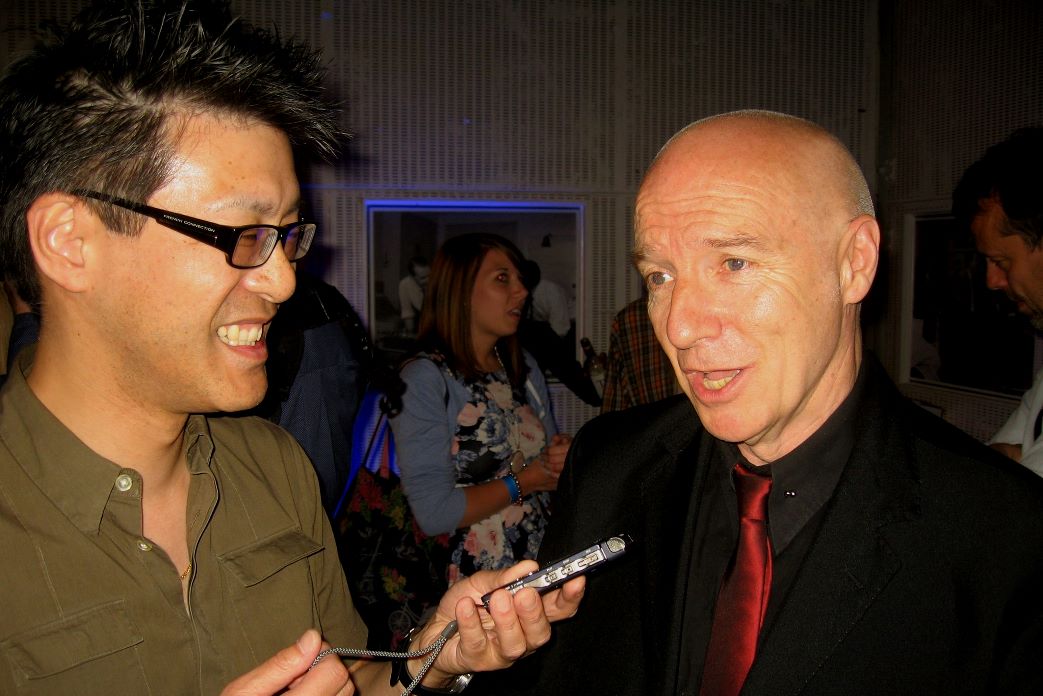
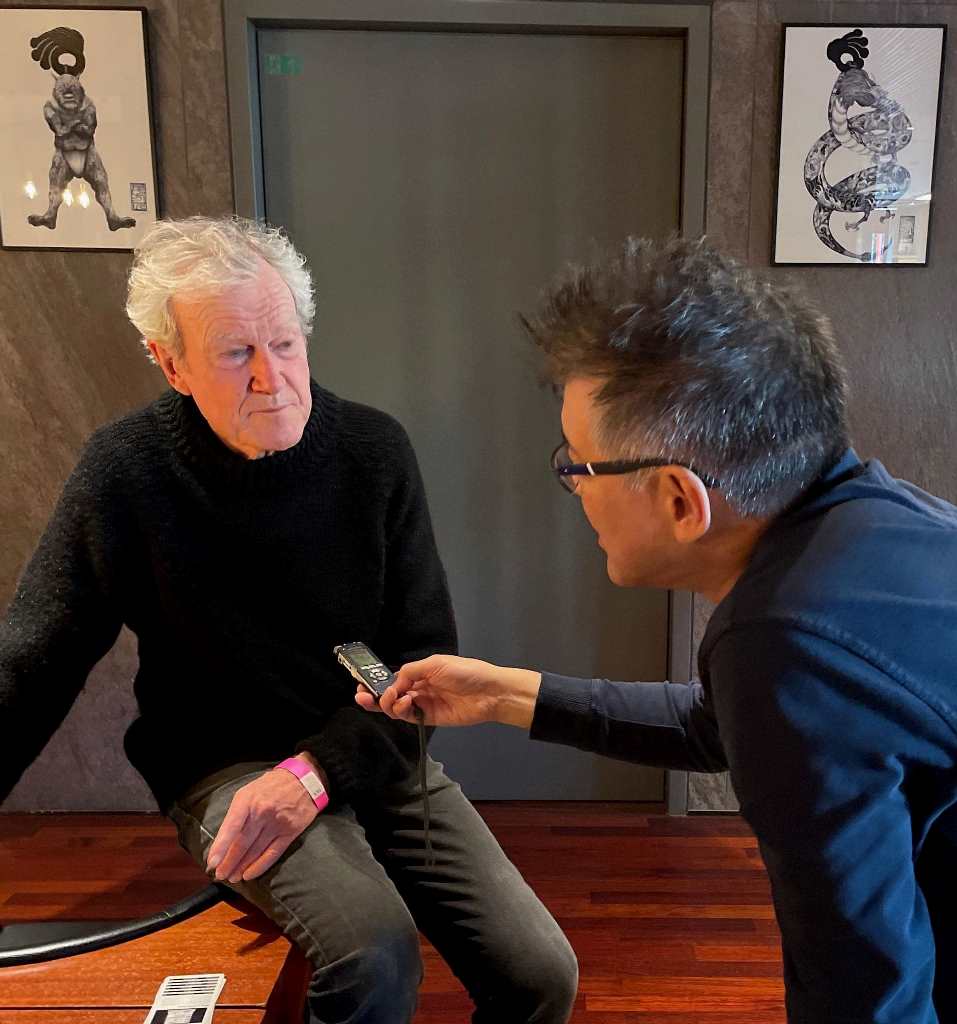



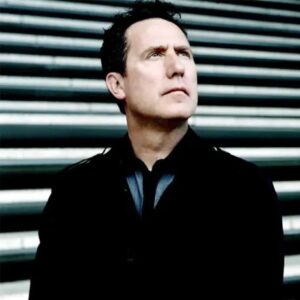
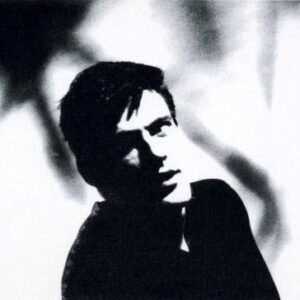

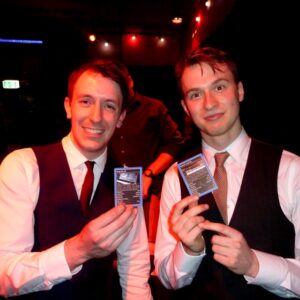
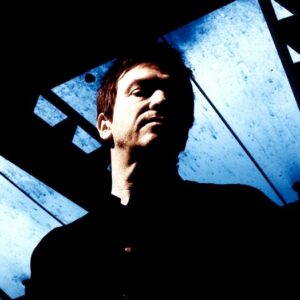
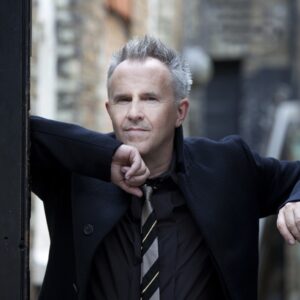



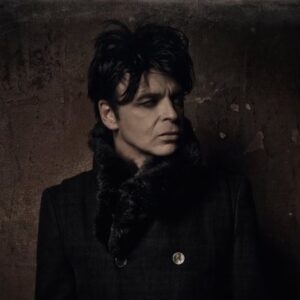
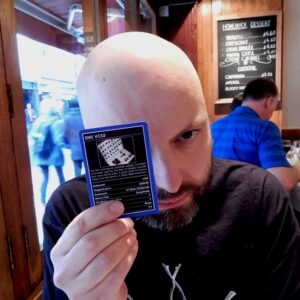




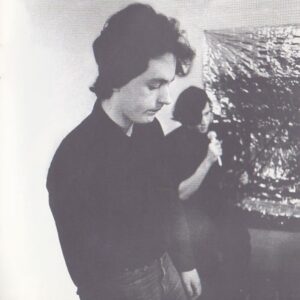
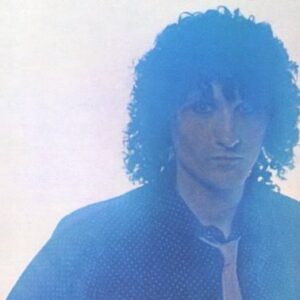
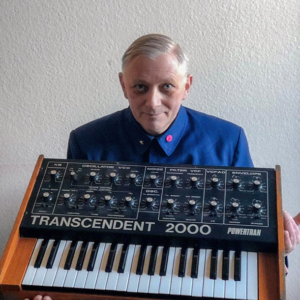



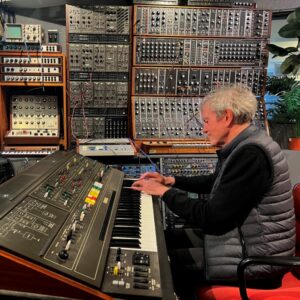
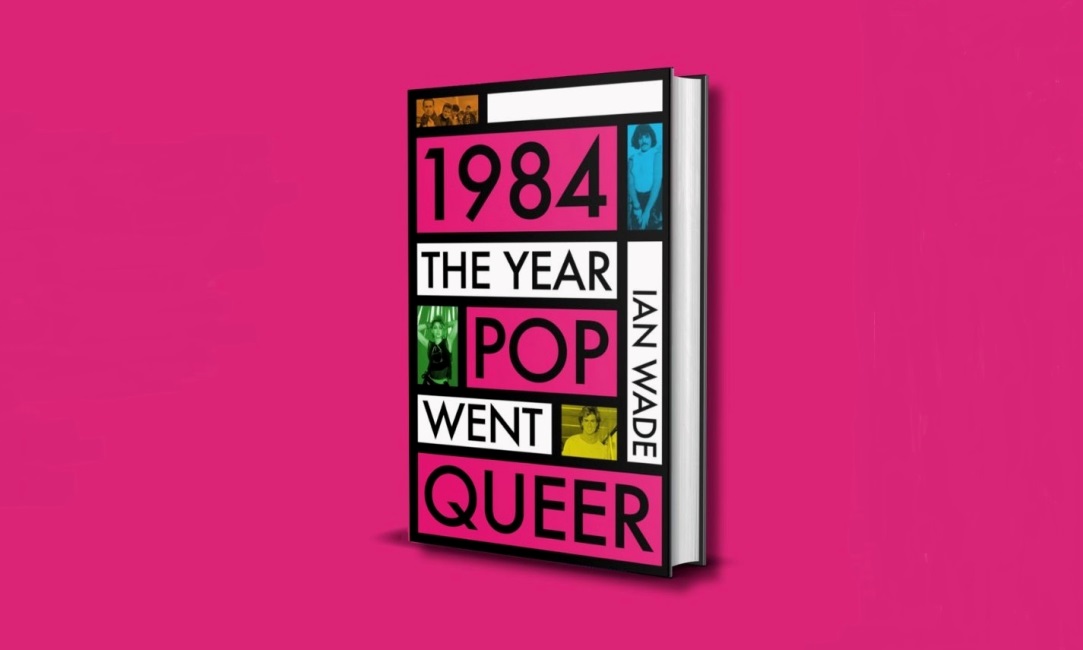
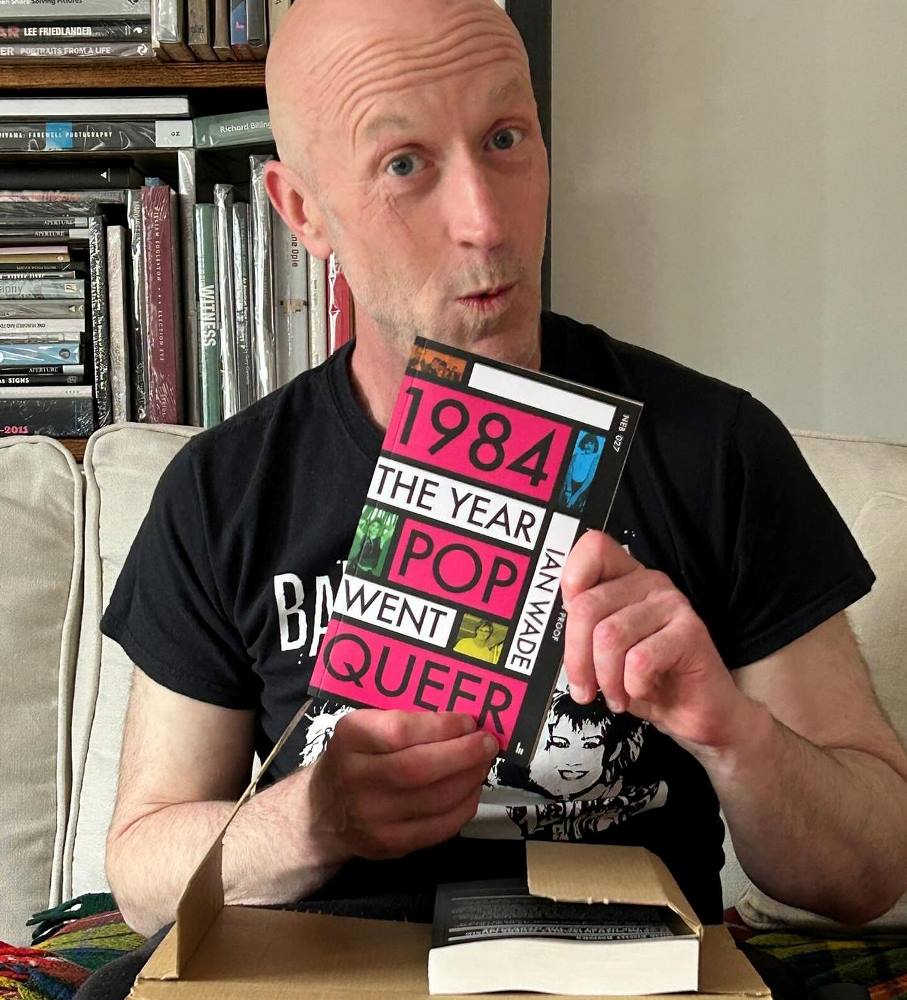
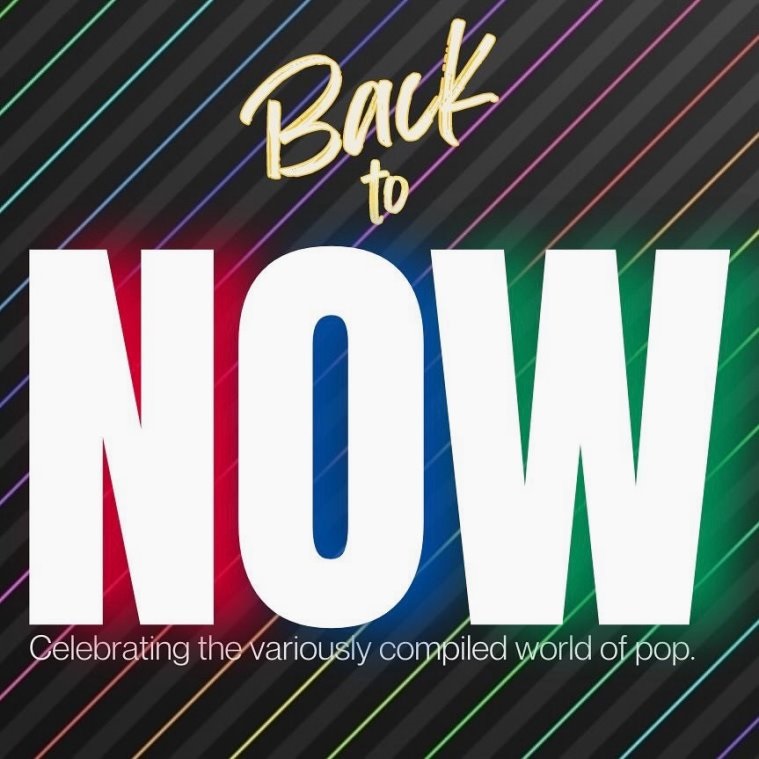


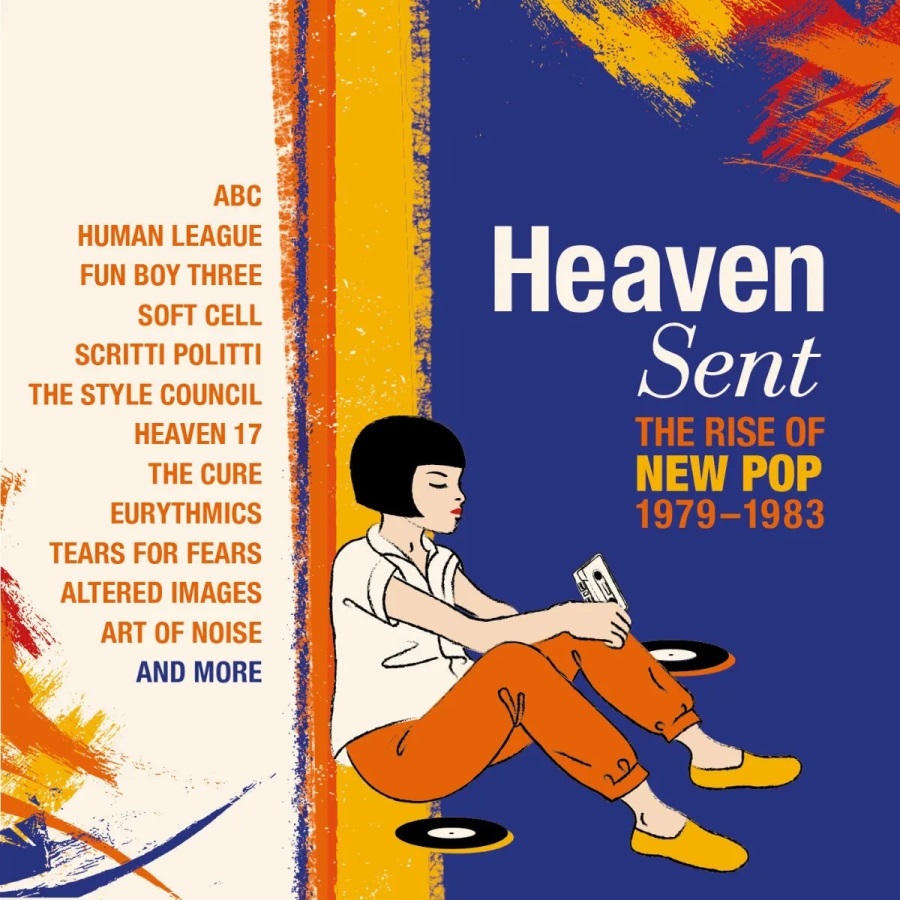
Follow Us!